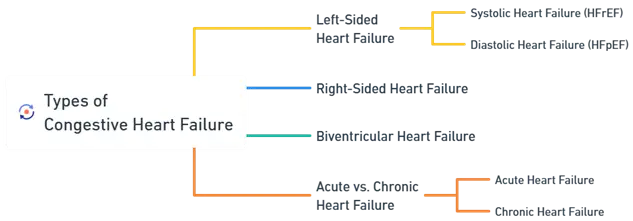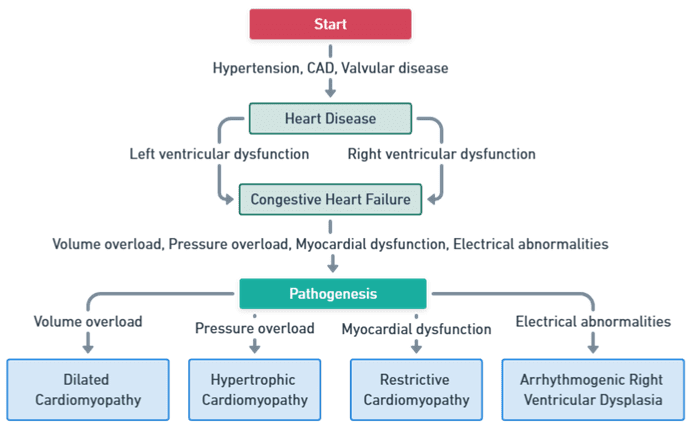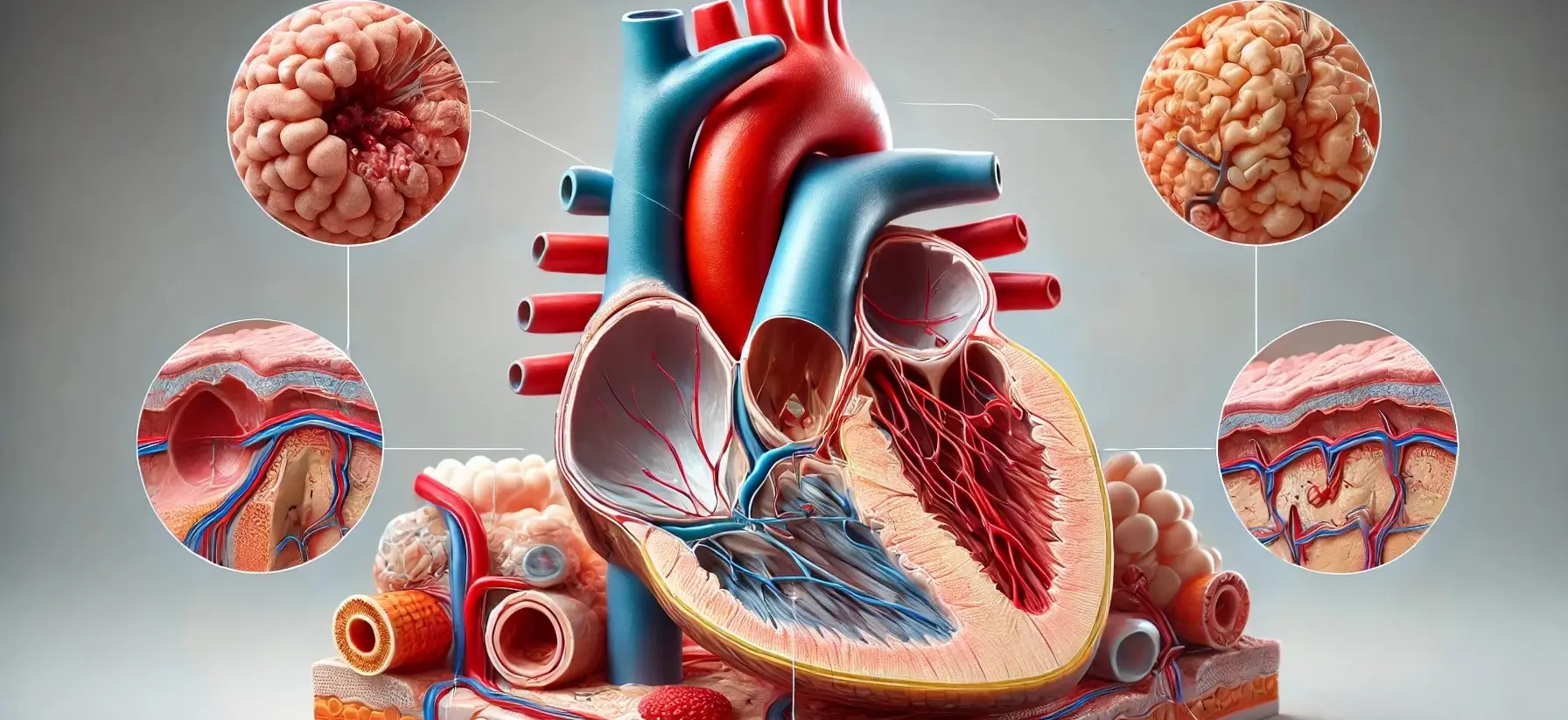- Congestive heart failure (CHF), also known simply as heart failure, is a condition in which the heart is unable to pump blood effectively, leading to inadequate blood flow and oxygen delivery to the body’s organs and tissues.
- The term “congestive” refers to the accumulation of fluid that can occur in the lungs and other parts of the body as a result of impaired heart function.
Types of Congestive Heart Failure

-
Left-Sided Heart Failure
- Systolic Heart Failure (HFrEF): The left ventricle loses its ability to contract normally, reducing blood pumped to the body.
- Diastolic Heart Failure (HFpEF): The left ventricle becomes stiff and can’t relax properly, leading to inadequate filling.
-
Right-Sided Heart Failure
- Occurs when the right ventricle can’t pump effectively, often due to left-sided failure. Causes fluid buildup in the legs, abdomen, and liver.
-
Biventricular Heart Failure
- Both left and right sides of the heart are weakened, leading to combined symptoms.
-
Acute vs. Chronic Heart Failure
- Acute Heart Failure: Sudden onset of symptoms, typically due to a heart attack.
- Chronic Heart Failure: Develops gradually over time due to conditions like hypertension.
Etiology of Congestive Heart Failure
- Several factors can contribute to the development of heart failure, including:
Advertisements
-
Coronary artery disease (CAD):
- Narrowing or blockage of the coronary arteries due to plaque buildup can reduce blood flow to the heart muscle, leading to damage or dysfunction.
-
High blood pressure (hypertension):
- Chronic hypertension increases the workload on the heart, causing the heart muscle to thicken and weaken over time.
-
Cardiomyopathy:
- Diseases of the heart muscle can result from various causes, such as infections, toxins, or genetic factors.
-
Valvular heart disease:
- Dysfunction of the heart valves can cause improper blood flow within the heart, increasing the workload on the heart muscle.
-
Congenital heart defects:
- Structural abnormalities present at birth can lead to heart failure later in life.
-
Arrhythmias:
- Abnormal heart rhythms can impair the heart’s ability to pump blood effectively.
Pathogenesis of Congestive Heart Failure
- Congestive Heart Failure (CHF) occurs when the heart is unable to pump blood efficiently, leading to inadequate blood flow to meet the body’s needs.
Key mechanisms include:

- Myocardial Dysfunction: Damage to the heart muscle (e.g., from a heart attack) weakens the heart’s pumping ability.
- Volume Overload: Excess fluid in the body (e.g., from kidney failure) increases the workload on the heart.
- Pressure Overload: Conditions like hypertension force the heart to work harder to pump blood.
- Neurohormonal Activation: Hormones like norepinephrine and angiotensin II increase heart rate and blood pressure, further straining the heart.
These factors cause fluid buildup in the lungs and other tissues, leading to the symptoms of CHF.Top of Form
Signs and Symptoms of Congestive Heart Failure
- The signs and symptoms of heart failure can vary depending on the severity of the condition and the individual’s overall health.
Advertisements
Common symptoms include:
- Shortness of breath (dyspnea): This may occur with exertion or at rest and can be particularly noticeable when lying down (orthopnea) or during sleep (paroxysmal nocturnal dyspnea).
- Fatigue and weakness: Reduced blood flow and oxygen delivery to the body’s organs and tissues can result in a general feeling of tiredness and lack of energy.
- Swelling (edema): Fluid accumulation can cause swelling in the legs, ankles, feet, and abdomen.
- Rapid or irregular heartbeat: The heart may beat faster or irregularly as it attempts to compensate for its reduced pumping ability.
- Persistent cough or wheezing: Fluid buildup in the lungs can lead to coughing or wheezing, sometimes with blood-tinged mucus.
- Weight gain: Rapid weight gain can be a sign of fluid retention.
- Nausea and loss of appetite: Reduced blood flow to the digestive system can cause feelings of nausea and a decreased appetite.

